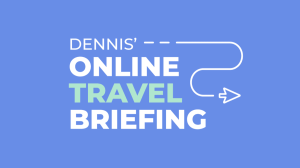Expedia's Vrbo Plays Its Hand in the Shadow of Airbnb
Skift Take

Dennis' Online Travel Briefing
Editor’s Note: Every Wednesday, Executive Editor and online travel rockstar Dennis Schaal will bring readers exclusive reporting and insight into the business of online travel and digital booking, and how this sector has an impact across the travel industry.Five years ago, Airbnb toyed with the idea of launching a a "superguest" loyalty program, but CEO Brian Chesky seemed to shoot down the notion of a rewards program a couple of weeks ago.
He cited the company's standard talking point that 90 percent of its traffic comes direct (Similarweb had it at 75 percent in December) and the fact that Airbnb attracts tremendous social media buzz, and was the subject of 600,000 news articles in 2022 to attract attention.
"The best loyalty program is building a product people love so much they want to come back and you [don't] have to pay them to come back," Chesky told financial analysts February 14. "And we just take a full funnel approach to marketing around PR (public relations), and we think of our general advertising as really educating people on new products."
That brings us to Expedia Group, which is poised to launch a unified cross-brand loyalty program this year that would enable guests of its major brands to earn and burn rewards. Previously, Expedia, Orbitz and Hotels.com

